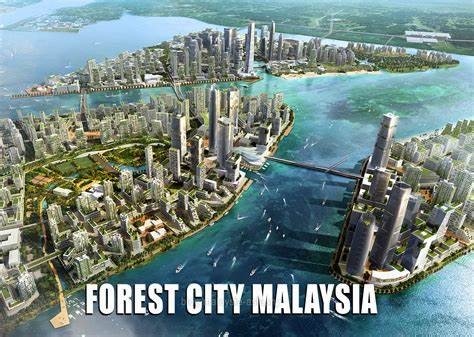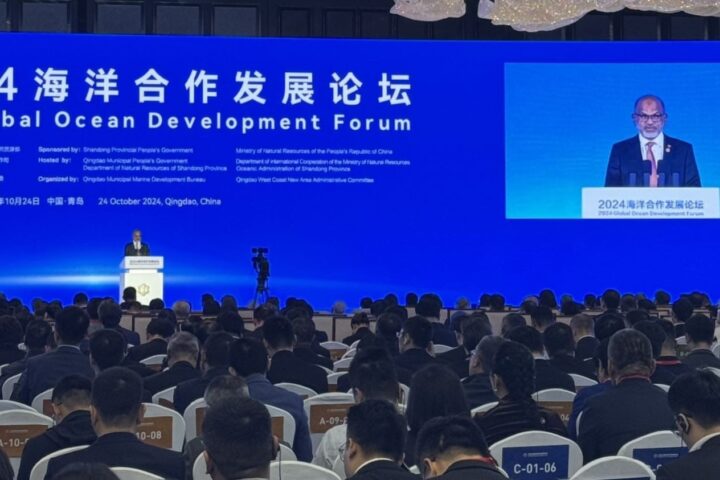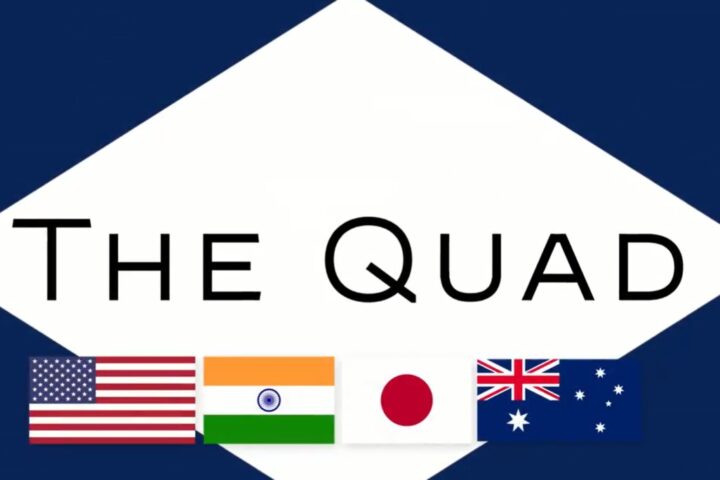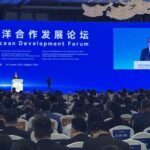Forest City, a sprawling $100 billion mega-project located off the coast of Johor, Malaysia, was envisioned as a futuristic metropolis. As depicted in promotional images, it features gleaming skyscrapers, interconnected waterways, and lush green spaces, all spread across four artificial islands. The ambitious development, spearheaded by the Chinese real estate giant Country Garden, aimed to create a thriving urban hub offering residential, commercial, and recreational facilities with strategic views of nearby Singapore. However, the reality of Forest City today starkly contrasts with these grand plans, as financial troubles have left much of the project incomplete and the once-bustling area now eerily quiet.
Once a symbol of Chinese economic prowess, Johor now stands at a crossroads, its progress stalled by the insolvency of Country Garden. The island, which was transformed into a bustling hub by substantial Chinese investments, now faces an uncertain future, raising concerns about its impact on the local economy and ongoing projects.
As China’s real estate market soared, properties on the artificial island became hot commodities, often compared to being as cheap as “Chinese cabbage” in contrast to the exorbitant prices in major Chinese cities. Housing prices in Beijing, for example, had doubled in recent years, making the Malaysian properties a bargain.
Johor’s artificial island, connected to the state capital, Johor Bahru, by a road, offers picturesque views of Singapore. Strategically located at the eastern end of the Malacca Strait, a key maritime route, the island is home to the $100 billion mega-project, Forest City. Today, only 30% of this vision is realized, with the company facing financial ruin.
At the heart of the island, a large dome-shaped sales facility stands as a relic of better times. It once featured a model home, a daycare centre, a restaurant, and a duty-free shop, bustling with over 100 salespeople catering to Chinese buyers. This facility now echoes with silence, staffed by a solitary representative, the daycare centre empty, and the restaurant shuttered.
It was part of China’s Belt and Road Initiative, launched by President Xi Jinping in 2013, to establish new “Silk Roads” for Chinese exports. Forest City’s growth surged after being recognized as a China-Malaysia collaboration, giving it an air of official endorsement and enticing Chinese buyers with a sense of security.
Now, with Country Garden facing a liquidation petition and the future of Forest City uncertain, the project’s grand vision has been halted. Property values have plummeted, with average two-bedroom residences dropping 30% to 40% in price, a substantial loss for early investors. What was once a thriving economic hub is now often described as an internationally known ghost town.
Interestingly, Malaysians, once detached from the development, now benefit from the affordable rents in Forest City’s condos. Many commute daily to Singapore for work, taking advantage of the island’s proximity.
Local narratives suggest that Malaysian politics also played a role in Forest City’s fate. The project faced a temporary halt when Mahathir Mohamad reassumed the role of Prime Minister, aiming to reassess its benefits for Malaysians. In the wake of Country Garden’s financial troubles, there were even plans to introduce a casino to revive the stalled project through gambling tourism.
The future of Forest City and other similar projects will likely be influenced by upcoming discussions at the third plenary session of the 20th Central Committee, scheduled for July. This session traditionally outlines China’s key economic strategies, which could provide some direction for the fate of the Chinese-constructed “ghost town” at Eurasia’s southernmost point. (Media Reports)















